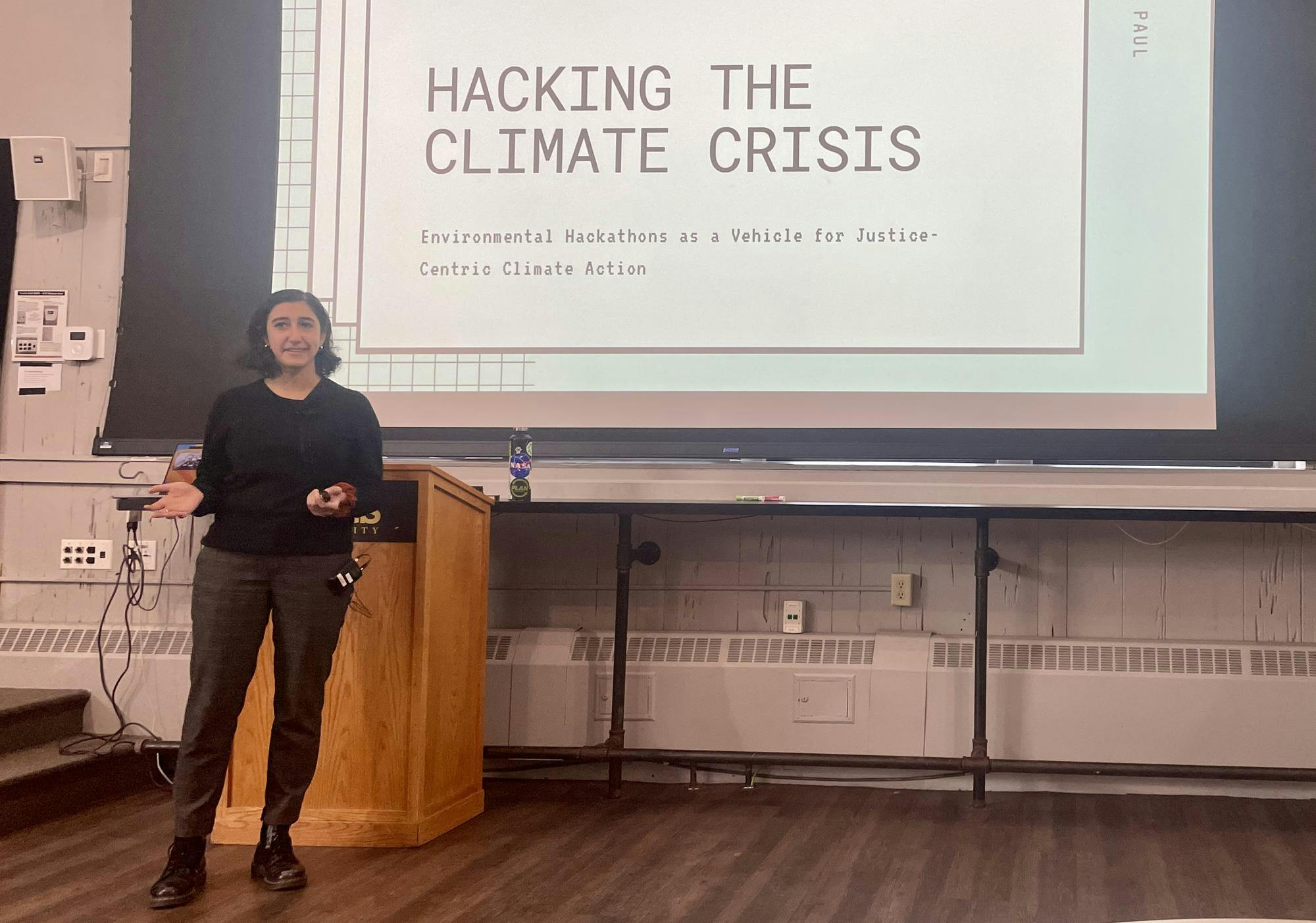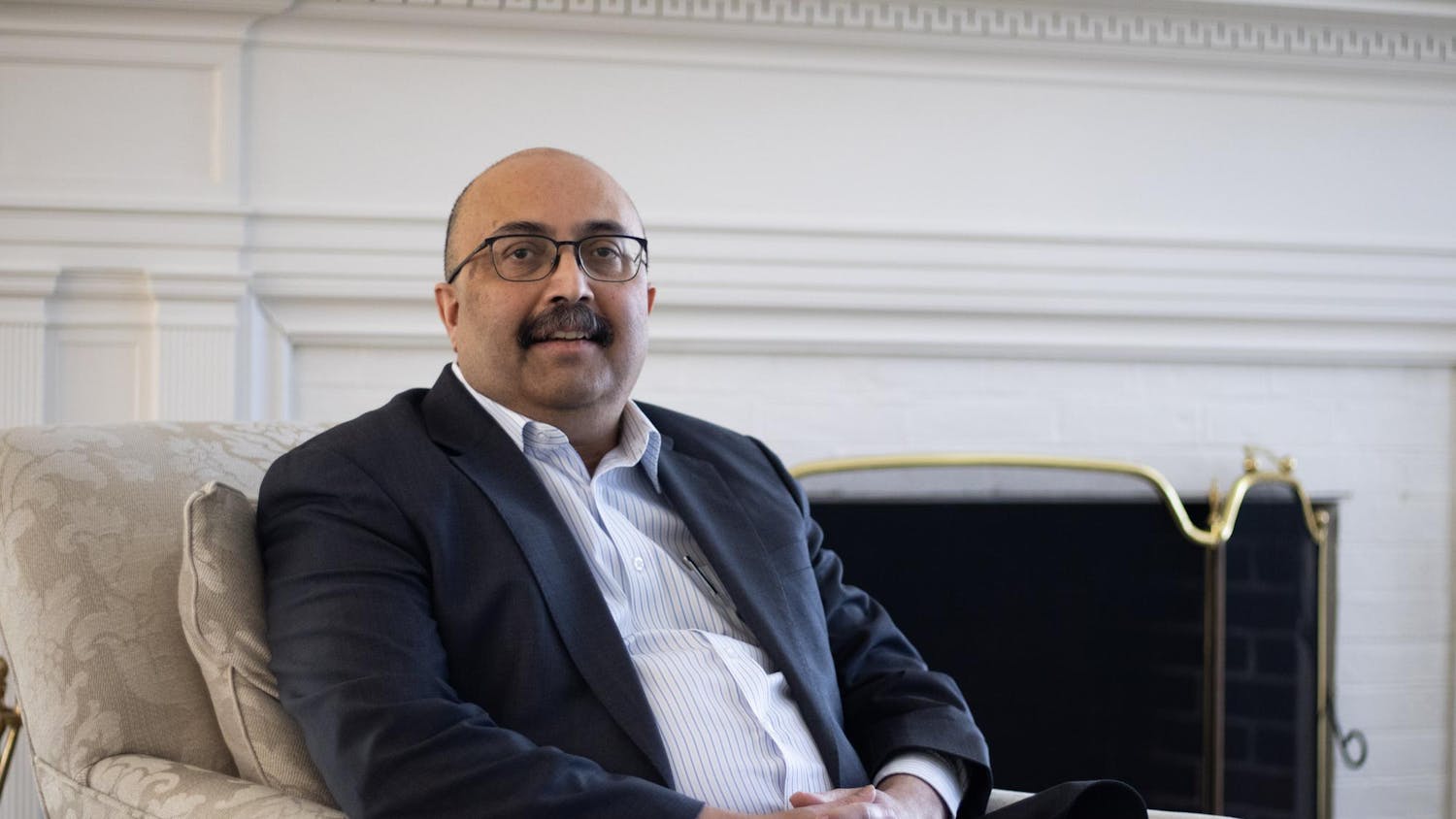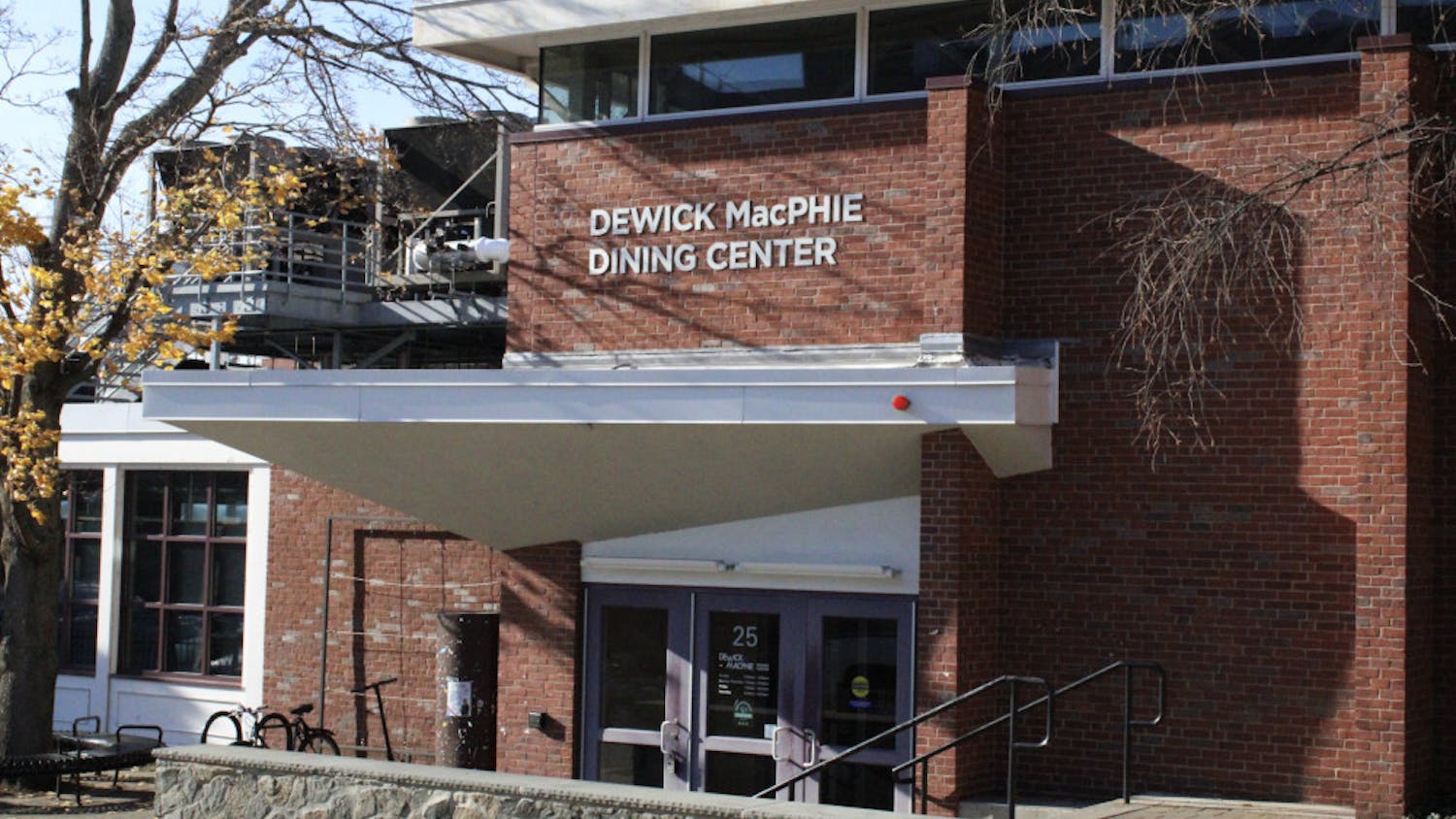Sanjana Paul, the co-founder and executive director of Earth Hacks, explored the philosophy of her nonprofit’s mission to make hackathons more environmentally conscious on Jan. 25. The event, titled “Hacking the Climate Crisis: Environmental Hackathons as a Vehicle for Justice-Centric Climate Action,” was part of the environmental studies department’s ongoing Hoch Cunningham lecture series.
Paul is a graduate student researcher in MIT’s Department of Urban Studies and Planning who co-founded Earth Hacks just over five years ago. Her nonprofit has now hosted over 50 environmental hackathons, events in which participants engage in friendly competition to develop climate-oriented projects.
“Traditionally, hackathons are programming contests,” Paul said. “People would go to each other’s garages and university spaces and teach each other new programming skills.”
A former student at Virginia Commonwealth University, she found great value in her undergraduate collaborative coding competitions.
“They’re a really great place for skill sharing and knowledge exchange,” Paul said. “They’re a really wonderful type of experiential, hands-on learning and education and they also provide, in my view, a wonderful opportunity for rapid prototyping and development.”
During her time as an electrical engineering student, Paul said she used hackathons to fill holes in her education, free of charge.
“I used to go to hackathons because I wanted to learn Python because it was not taught in my degree program, which I roast them for to this day because I’ve used it in every engineering job I’ve had,” Paul said.
Paul did say that while she found these undergraduate hackathons helpful to her professional development, they left much to be desired in the way of conscientious programming.
“While, yes, there was this focus on learning, it was very oriented toward these incredibly obtuse computer science programs that only third-year computer science majors, who did not care about what was happening in the world around them, were interested in,” she said. “It was only important if you wanted to go intern at a defense contractor. It was only important if you were there to build up your resume as opposed to actually gaining those skills.”
This is ultimately what prompted her to create Earth Hacks.
“I really felt the potential of what this could be,” Paul said, wanting to create “a platform and a space for hackathons to be these really community-driven, inclusive spaces to engage with issues that are actually happening in the world.”
As the organization grew, so did its mission. In her presentation, Paul detailed how the nonprofit expanded to a broad, multifaceted organization that sought to bring as many people together within the format of a hackathon to assist climate conservation efforts.
This inclusivity has manifested with law students working alongside engineers on climate issues, professors working alongside high school students in an “intergenerational exchange of knowledge” and a requirement that all of the hackathons that EarthHacks hosts have a community partner, in order to further encourage participation.
EarthHacks’ next hackathon from Feb. 3–4 will address sustainable energy transition challenges and is co-hosted by Global Energy Monitor and MIT’s chapter of the Society for Applied and Industrial Mathematics.
In an interview with the Daily, Paul highlighted how environmental hackathons have shaped previous participants’ career decisions.
“We had a student who was studying computer science,” Paul said. “She was planning to take a job in the health insurance industry as a software engineer and after coming to a couple of our events, they gave her the motivation and the insight needed to completely pivot her career path, and she now works with satellite data for global water distribution.”
One of Earth Hacks’ past events, Urban Heat Island Hackathon, visualized surface temperature data from the International Space Station, and another event, Vaquita Hacks, sought solutions to save the endangered vaquita dolphin. AmazoniaHack, a bilingual hackathon in English and Portuguese, focused on conservation in the Amazon rainforest.
Like Paul, Michelle Zakaria, a sophomore majoring in computer science, is aware of the concerns surrounding social awareness in STEM.
She mentioned that while applying to summer internships, she found that many companies offering good pay are connected to defense and that some people in her life look down upon working in such a field.
“I feel like having broader options beyond that is big,” she said.
Camille Minns, Earth Hacks’ community manager and a graduate student at Tufts, emphasized the connection she has noticed between her academic work pursuing a degree in environmental policy and planning and her role at Earth Hacks.
“Environmental justice is a huge part of our work in creating justice-centered climate action,” Minns said. “Of the various urban planning programs that exist out there, I am definitely grateful for the environment, the foundation that’s been laid at Tufts’ [Department of Urban and Environmental Policy and Planning] because I feel like justice has been embedded as such a central focus to the kind of work that we do there.”






